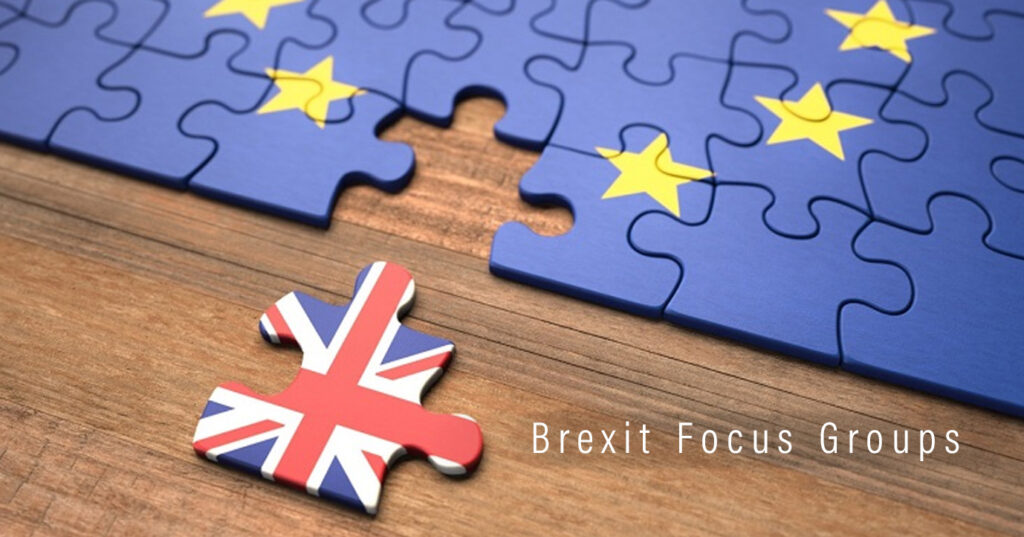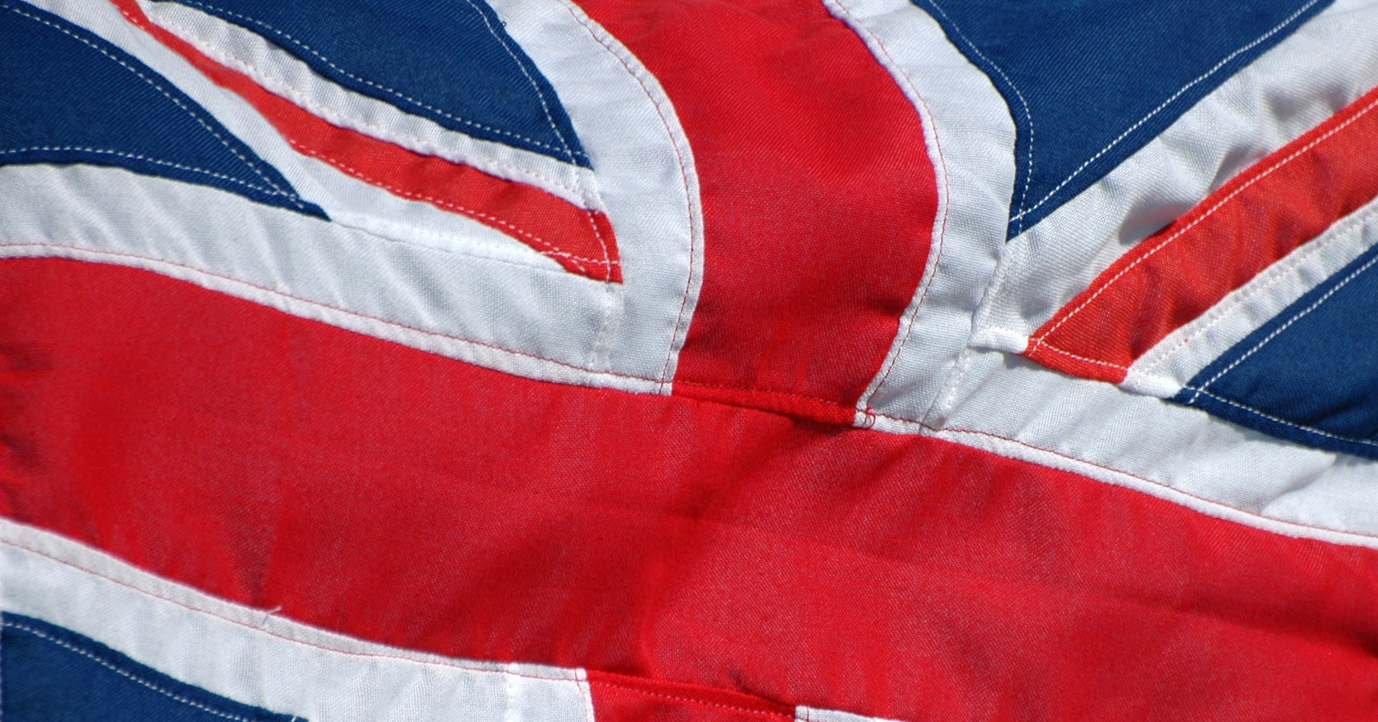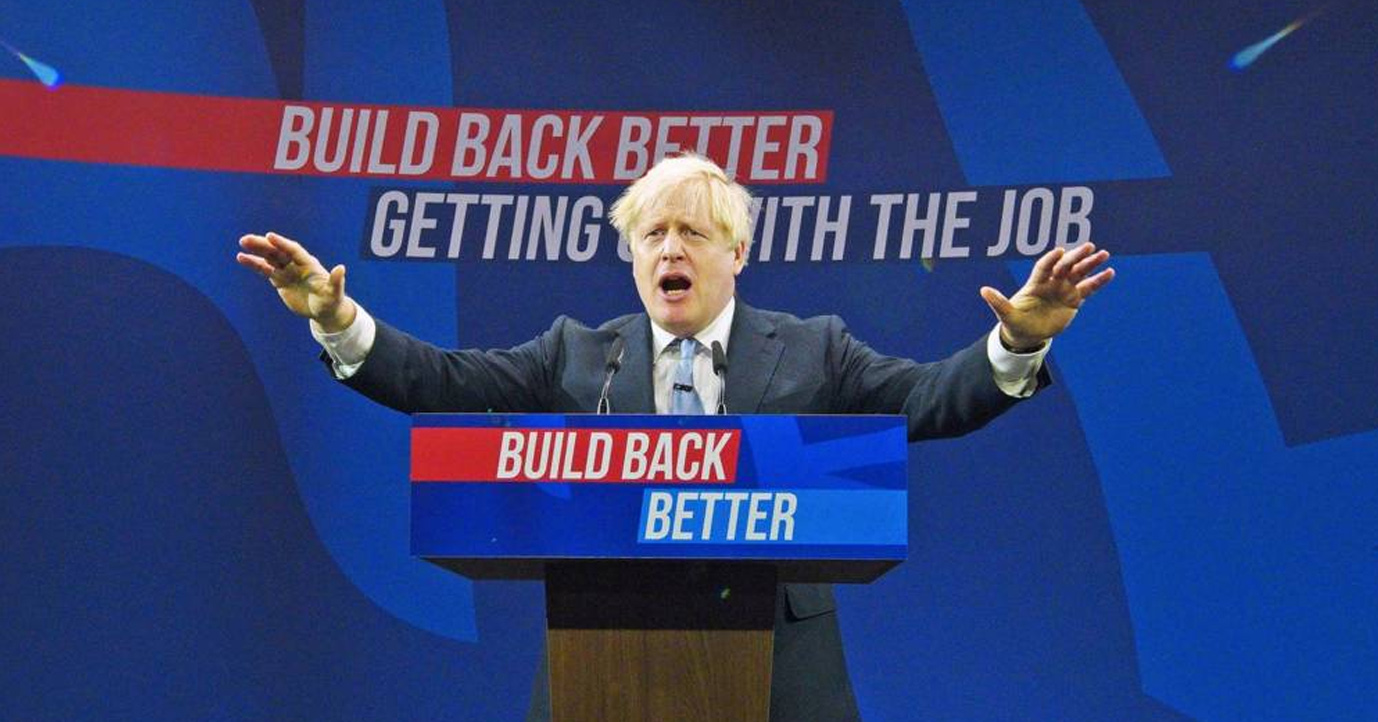
For our latest round of research into how the rest of Europe views the EU, Britain and the prospect of Brexit, Lord Ashcroft Polls visited two southern capitals: Athens and Madrid.
Our focus groups in Greece were timely. Prime Minister Alexis Tsipras warned that his country was in danger of becoming a “warehouse of souls”, with more than 40,000 migrants unable to move on as neighbouring states close their borders. Not surprisingly, the issue was top of the agenda for our participants: “it is a matter of the survival of the state.” Greece would find it impossible to absorb such vast numbers, let alone integrate them, and the costs could be huge, both financially and in terms of social cohesion.
Yet there was strikingly little resentment in our groups against the migrants themselves: “people are running for their lives”; “how can they go back? They are being bombarded.” Even if some were not genuine refugees, participants did not necessarily blame them for making the journey: “in the ’60s and ’70s we were economic migrants when we came from the countryside to Athens.”
Instead, they lamented that “we’re an unorganised country. People want to help but there is no organisation. They don’t have a plan. Tsipras said we weren’t prepared and I think it was decent of him to admit that. The whole of Europe was unprepared, especially us.”
“This illegal movement is making Turkey rich.”
But there was only so much the Greek government could do: “They’re coming whether we want it or not, and we can’t send them out. We’re stuck in a vice.” Some thought Turkey could do more (“they could stop the boats;” “Turkey is part of NATO but says it won’t co-operate with Frontex [the EU border agency] because Cyprus is involved!”), or was even promoting the trafficking of migrants: “these people leave Iraq or Africa and get into Turkey and arrive on a Greek island and want to go to Germany. How have they arranged this?”; “this illegal movement is making Turkey rich.”
“It’s not a union, is it? We’re supposed to be a member of the European family.”
For most, the real problem in handling the crisis was the absence of help from Greece’s neighbours. For some, the position of other EU countries was logical enough: “They want to gather them here because they don’t want them moving throughout Europe without control. They want to absorb them gradually. If we were in their position we’d probably do the same.”
Still, so much for the idea of European solidarity. “It’s not a union, is it? We’re supposed to be a member of the European family;” “they have abandoned us to the mercy of heaven”.
Easy to blame the foreigners
The migration crisis is only the latest chapter in the history of Greece’s turbulent recent relationship with the EU. In a referendum last July, Greek voters rejected the bailout conditions proposed by the European Commission, only for the government to accept austerity conditions harsher than those that had been put before the people. But if some of the measures were painful and had been accepted “at gunpoint”, few held Brussels responsible for the crisis: “it’s easy to blame foreigners rather than ourselves,” and after all, “it’s not the foreigners’ fault there are so many public servants in this country.”
“It’s like having a teacher at school who pampers you and gives you the answers and then starts being strict.”
The truth was that Greece had “spent outrageously” and that generous help from Europe over many years had “made us lazy. With all the subsidies, a lot of people found the easy way out, and they weren’t invested as they should have been;” “why does a country with the sun and the best soil choose not to produce, but to take subsidies? Now we can’t live on our own”. It was no good complaining now that times had changed: “It’s like having a teacher at school who pampers you and gives you the answers and then starts being strict.”
Similarly, Greece had made the most of low interest rates since joining the euro at its inception in 2002 (“in drachma terms, the rate would have been three times as much. You needed a bucketful of drachma to buy a packet of cigarettes”), until the amount owed was “tragic”. But “when it’s time to pay, we blame the lenders for asking for their money.”
“They saw us as the spoilt brats of the EU. Well, we are in a way.”
Their assessment of how they were seen by other Europeans was strikingly candid and, on the basis of our research in other countries, accurate: “It must have driven everybody crazy. Everyday people, who were paying their taxes, were saying ‘why should we be lending to Greece, with their pensions?’ What age do you think they get their pension in Germany? Sixty-five!” “They saw us as the spoilt brats of the EU. Well, we are in a way.” Though some blamed politicians rather than the people for allowing Greece to reach such a state, they could understand others’ exasperation: “If a person borrows and builds a house and a swimming pool and then says he can’t pay back the loan, why should this person live at our expense?”
Not a country that can arrange things
Overall, most of our Athens participants thought EU membership had been good for Greece. The migrant crisis and the bailout deals had severely dented the notion of European solidarity (“during the negotiations they wanted to eat us!”), some saw the EU as a cabal of “crooks” and “predators”, and they laughed at the idea of Greece having influence in Brussels (“have you seen where Tsipras stands in the EU photographs? At the far end on the left!”).
But even if some help had been squandered, “our development was on EU funds – we were the most undeveloped country, the poorest country, and they gave us loads of money,” and “if we were not in the EU we would be begging”. Being “a weak state at the edge of Europe” they “couldn’t have survived without the EU or some other union”. Europe gave them important rights, including free movement, and for most it was unthinkable to leave: “it is very difficult to go back once you have become accustomed to something better.” (Also “if we were not in the EU, Turkey would do what they like”).
“If we were not in the EU we would be begging.”
The real problem was Greece’s seeming inability to sort out its own problems. “There is no system, they work by patching things up. There is no proper approach to long-term planning. So whatever politician comes to power, the same things will keep happening;” “the EU has paved the way for the institutional framework to be upgraded. Greece is a country that has tools and doesn’t know how to use them;” “There should be reform, there should be a beginning, a middle and an end. We should think that paying the money back will make things better for our kids, but I don’t think any of these things are true. This is not a country that can arrange things;” “The reforms are right but they don’t dare implement them. There is no politician who can reorganise or restructure the state.”
“We will be like Bulgaria, then Romania.”
Optimism was hard to find. “There is disappointment and insecurity. My son speaks three languages and is unemployed. He is looking for jobs abroad. We will hit rock bottom and will get to where we were maybe ten years from now;” “We will be like Bulgaria, then Romania. We all know there is no money going round the market”. On top of all this, there had evidently been an outbreak of mixed metaphors: “It’s a vicious circle, we’re in a black hole and we’ve reached rock bottom. We’re throwing money down the abyss.” What are the good things about life in Greece? “The weather.”
A stone in their shoe
In Madrid, where negotiations had failed to produce a new administration three months after an inconclusive general election (“please just form a government, you’re driving us crazy!”), views were similar, if slightly less gloomy. If the crisis in Spain had been somewhat less dramatic than in Greece, people continued to feel its effects and most saw no prospect of an early recovery.
Were things in Spain better or worse than they were ten years ago? “Is that a real question? I don’t think we’ll ever get back to where we were then. I earned more twenty years ago.” Though things had improved on paper, jobs were hard to come by and “even those who work are poor. They never make it to the end of the month.” The Spanish economy “isn’t going to be able to absorb all the people who are out there,” and there seemed no prospect of the radical reforms that were needed: “we have a tax system that has been around for forty years. It doesn’t work, it’s never worked.” Productivity did not seem to be among their strong points: “We seem to work longer hours but do less work.”
“The only reason we haven’t had a revolution is that the grey market is so buoyant.”
Corruption was another part of the problem, but “we bring it on ourselves. In the US it is unthinkable that you would cheat, but in Spain we love to get our cousin a job;” “In Spain, we accept corruption. In other countries, if you jump the subway barrier, that’s a big deal. We’re never going to be like that.” On the other hand, this sort of informality had its benefits: “The only reason we haven’t had a revolution is that the grey market is so buoyant.”
“We had to follow what the Axis declared.”
For some, Europe was to blame for Spain’s austerity measures (“they set the beat, Spain has to follow. We had to follow what the Axis declared”), but most still saw the EU in a positive light: it represented (at least in theory) solidarity, progress, democracy, strength, a single market, safety, and a way of competing with China and the US (“the cake is going to be split between the biggest markets so we’ve got to stay united”).
Still, several felt an “imbalance” within the union: “Germany and the northern European countries are in charge. The rest of us, the pigs, Spain, Portugal, Greece, are a pain in the butt. We’re like a rock in their shoe.” But this was easily a price worth paying for “the sense of safety” that membership brought. Also “we will always get more aid from the EU than if we were on our own.”
Those who live with the sheep
How do our Athens participants feel about the accession plans of their neighbour and rival? “Why does the EU want Turkey as a member? It doesn’t follow any rules;” “There are two types of Turkey – Constantinople, the European section, the coast, and then the regular Turk, those who live with the sheep.” Then again, “the good thing about Turkey joining the EU is that it may restrict itself. It would have to comply with European procedures. It won’t be able to do what it has been doing,” such as allowing its fighter aircraft to violate Greek airspace.
“Once we became twenty-eight, we stopped being pampered and they started giving presents to the Eastern bloc.”
What about the other applicants – Albania, Montenegro, Serbia and Macedonia (referred to as Skopje in Greece, which has a Macedonia of its own)? Another outbreak of candour: “We were once the poorest and we were pampered. Once we expanded and became twenty-eight, we stopped being pampered and they started giving presents to the Eastern bloc. These new members would make it even worse.”
Friends and foes
What makes the southern countries different? “Countries in the north take everything so seriously! We take things a bit more lightly. We’re not squareheads. We’re more relaxed and free-spirited;” “We do things how we feel like doing them.” Why do you suppose that is? “We have more sunlight, so we see things differently.”
Accordingly, groups in both cities thought their fellow southerners their closest allies within the EU. Did they have any opponents? “Austria, Finland. The Poles. Scandinavia and Denmark are the worst. And the former Eastern bloc.” That’s quite a few. “And Britain. Even now, their stance on refugees is not in our favour. They want to keep the refugees here.”
The Catalans of the EU
Ah yes, Britain. “They have one leg in and one leg out,” and this was a pity since a more active UK could have meant “a better balance of power” to counter German domination. Still, Britain’s position was perfectly rational: “It wasn’t in their interests to join the currency union. They would have had ‘sucker’ painted on their foreheads in big letters if they’d joined the euro;” “It’s nothing to do with feeling. It’s that they put more money into the pot than other countries do. They don’t reap the reward.”
“They would have had ‘sucker’ painted on their foreheads in big letters if they’d joined the euro.”
Now “Britain is saying ‘in order for me to stay, you’ve got to do this and that for me’. Well, good for them if they can do that. They assert their position;” “They think about what’s in it for them. They’re the Catalans of the EU.”
Do you mind if they stay or go? “I don’t give a damn. I don’t like them anyway.” Oh dear. Why is that? “Cyprus, the war. We don’t have very good memories.” But let’s not be hasty: “Whatever they give, they wouldn’t give it any more. The rest of us would have to give more.” And “it’s not just economics. Their opinion matters internationally. England [sic] has to be there, it has to be there. They’re major league. Without them Europe would dissolve. It wouldn’t be sustainable;” “We would be left with Germany doing whatever they want, without control. It would be a totally German union.”
“I get restless when talking about the entry of the Turks and the exit of England.”
In Greece there was also, as ever, the question of the neighbour: “I get restless when talking about the entry of the Turks and the exit of England.”
If Britain voted to leave, should the EU try to tempt them back? “They left the negotiating table very happily. In the past they had carte blanche, so it’s even more carte blanche now.” The more was conceded to the Brits the more they would want, and if they are not happy now, “what else could we offer them? A cup of tea?”
Polite hooligans
What else do we think of when we think of Britain? “Margaret Thatcher with her finger;” The Queen with her hats;” “Bobbies;” “James Bond;” “Music;” “Self-deprecation;” “Power, strength – if you look at a world map, it is a small island that conquered all those countries.” Who is the prime minister? “Cameron, the one with the big forehead. He used to be wild during his youth.”
“The English are very polite, but they freak out.”
What about the people themselves? “I have friends who are English. They’re very dull, but they drink a lot.” This is a recurring theme: in our EU-wide poll, when asked which word or phrase summed up the British, one in eight Greeks said “binge drinkers”, and our Spanish participants agreed. “They don’t go out and party, they go out drinking. They actually say, ‘let’s go out drinking’. They are very polite but they freak out and go crazy like hooligans;” “They behave better in their own country than they do here. In Ibiza and Majorca, you can tell who’s British from a distance. The families are great but the young people are savages.” Why do they behave like that? “In England they are out until midnight. Here, it’s five, six, seven in the morning. It’s not our fault their country is so boring.”
Finally as ever, if Britain were an animal, what animal would it be? As in other destinations, several suggestions of “lion”, though not always in the most flattering way: “In a zoo, sterilised. It thinks it has an empire but on the global map it plays no role at all;” “A tiger, waiting for a victim. Look what they did in Cyprus;” “A skunk, small, dirty and sly.” Oh. Any other offers? “A dolphin. Flexible, wiggles along, doesn’t bother anyone, you see it and smile;” “A monkey. Sits on your shoulder looking at the situation, and if it thinks something is being taken away from it, it attacks;” “A deer. Majestic and audacious.” That’s more like it. “An elephant. Strong and powerful, but not aggressive;” “A bulldog, which is how they see themselves. A bulldog is calm but you wouldn’t want to piss it off.” Quite so. “A bulldog mixed with a squirrel”. Hmm.


